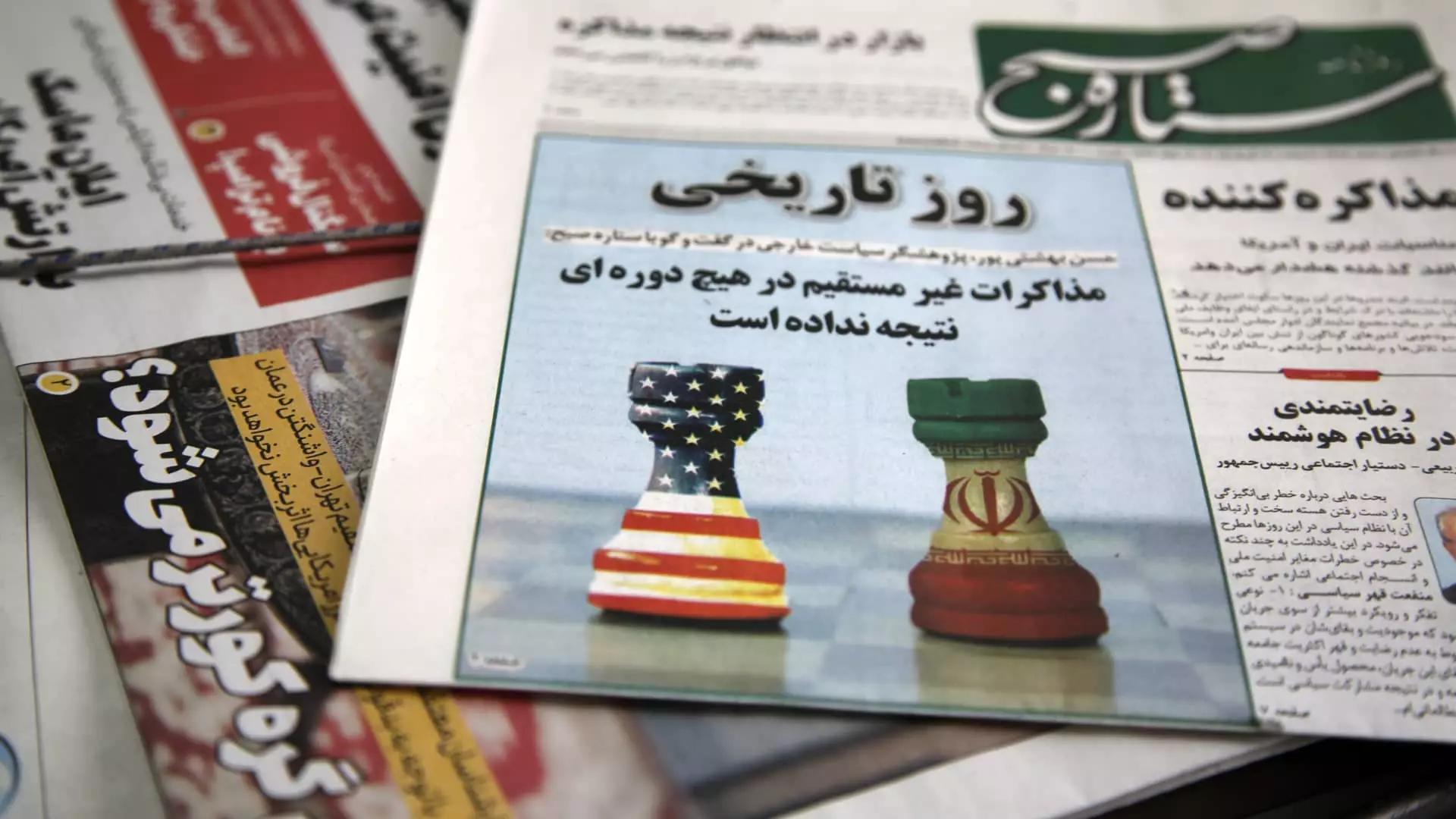The ongoing saga between Iran and the United States has reached yet another pivotal chapter, with new nuclear negotiations set to unfold in Rome. This latest round of discussions, while seemingly promising, is heavily overshadowed by the specter of President Donald Trump’s militaristic rhetoric. The threat of unleashing military force if diplomatic avenues falter clouds the atmosphere of what should ideally be a dialogue aimed at resolving decades of hostility. The interaction will not only feature Iran’s Foreign Minister Abbas Araqchi but also Trump’s Middle East envoy Steve Witkoff, whose involvement highlights the paradox of negotiating peace under the threat of violence.
As the diplomats prepare to engage through Omani mediators, they do so against a backdrop of cautious optimism and stark skepticism. Despite the constructive nature of their recent talks in Muscat, Iran’s leaders, including Supreme Leader Ayatollah Ali Khamenei, have tempered expectations, signaling that a swift resolution is unlikely. The sentiment reflects a deep-seated wariness within Iran regarding America’s reliability, particularly in the wake of Trump’s unilateral exit from the 2015 nuclear accord.
The Diverging Diagnostic: Perspectives and Motivations
At the heart of this protracted negotiation lies a fundamental mismatch in perspectives. Washington insists that Iran must halt its production of highly enriched uranium, with intentions of preventing the emergence of a nuclear-armed Iran. The stakes are undeniably high for both parties, as both sides are playing an intricate game of diplomatic chess, each move fraught with implications. Yet, while the U.S. portrays its focus as one of accountability, Iran views this as an existential threat to its sovereignty.
For Tehran, the pursuit of nuclear technology has often been framed as a peaceful endeavor, aimed at fulfilling its energy needs rather than seeking military capabilities. This dichotomy creates an either-or scenario – either Iran complies with demands that could severely limit its nuclear program or faces international isolation compounded by military threats. Such a binary approach inevitably leads to a confrontational dynamic, one which could easily devolve into open conflict if handled carelessly.
Red Lines and Negotiation Tactics
Iran’s negotiating strategy is eloquently outlined in its refusal to dismantle centrifuges or halt enrichment altogether, a stance signaled through anonymity by a senior official privy to the internal discussions. This implies a hardening of its position as it grapples with the implications of any concessions. As Iran navigates its red lines, it does so with steadfast resolve, underscoring its unwillingness to accept any agreements that risk past transgressions from being repeated.
What stands out is the relentless insistence on watertight guarantees from Washington – a plea for trust in a relationship historically marked by betrayal. The ramifications of Trump’s 2018 withdrawal from the nuclear agreement loom large; Iranian leaders approach these negotiations with the conviction that any concessions will be met with further violations. Therefore, the dialogue becomes one marred by distrust, further complicating prospects for harmony.
The Geopolitical Chessboard: External Influences
Complicating matters further is Russia’s emergence as a potential mediator. Their eagerness to assist indicates the broader geopolitical implications of the U.S.–Iranian standoff, as it extends beyond a bilateral affair to involve regional stability. However, can any external influence genuinely bridge the chasm separating the two parties? The presence of a third party might provide opportunities for dialogue, but it also risks introducing further complexities into an already convoluted discourse.
The geopolitical ramifications extend not just to the Middle East but resonate throughout global diplomatic relations. Countries worldwide keenly watch these negotiations, conscious of how they affect regional and even global security. The challenge lies in transforming this complex web of distrust into a constructive dialogue rather than an escalation into conflict.
As the world holds its breath, the upcoming negotiations are fraught with potential pitfalls and rare opportunities. The essential question remains: will diplomacy prevail, or will the thunderous rhetoric of military options drown out the whisper of negotiation? Only time will tell if these discussions signal a renewed path towards resolution or a further descent into chaos.

Leave a Reply